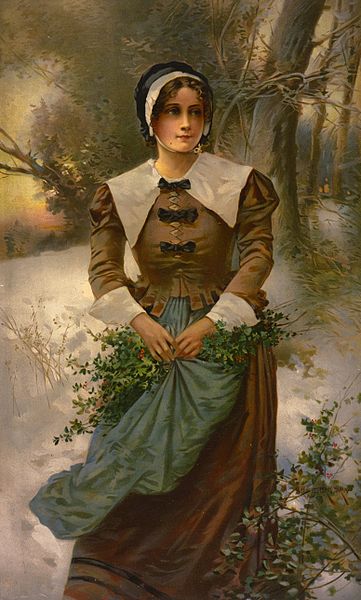 The Handmaid’s Tale is one of those not very good books that many people think is a great book at least for a short time.
The Handmaid’s Tale is one of those not very good books that many people think is a great book at least for a short time.
I wanted to love this book, because I know if I do not love it, I will be dismissed. The cool kids love it. The kids I would like to be like love it. I did not even like it.
There is a plot, but not much of one. There are some beautiful passages, but also some very clunky ones and the ending is laugh out loud funny, I assume unintentionally. There is one character, Offred, and a good many other stick figures revolving around her.
The central character struggles to be herself in a misogynistic state. She is not just a woman, but is a woman and that has been and now is a problem. History is presented as a long story of misogyny nearly escaped in the mother’s generation only to end (for Offred). If Offred thought deeply, or her college education (before the changes) had given her any window to the history of her own culture, she might have had complicated reactions to the world.
She does not. Instead, Offred is presented with evil and twisted versions of traditional families. The dystopia has chosen to deal with a birth dearth in one of the worst ways imaginable and as a result, even worrying about the real world decline of men choosing to be fathers and women choosing to be mothers is tainted for any reader who takes the book as a warning. “Beware the cult of motherhood!”
There is nothing subtle in the book. Offred has lost her true name, she is “Of-Fred,” and even the possibility of friendship is spoilt.
The dystopia is against love matches, but the book’s tone is not much more hopeful when it comes to marriage. Sex is demonized in the dystopia unless it is loveless procreation. For Offred real sex is pleasurable and most vitally is a matter of choice and so freedom in her life. This is better than Gilead, almost any view would be, but still loveless in a traditional sense of love. Duty and morality are gone or Gilead twisted. (Offred had an adulterous relationship with a man she eventually married before the dystopia.) Love does not last, one must be free to choose and enjoy the emotions while they continue.
The most authentic emotion in the book is a near despair, a toying with suicide, overcome by a will to live.
It is important to be fair to the book which is not nearly so dreadful or hard on Christianity as contemporary advertisements for the television version make it seem. We are told The Handmaid’s Tale features a dystopian society that takes Genesis literally. It does not. Apparently everyone in the future has forgotten how to apply genre rules, cultural context, and the entire message of a text to particular passages of the Old Testament. The book describes a society that has misread and misapplied pieces of the Bible, but of course that would sell fewer books to the sort of people who think that in fact the Republic of Gilead is taking Genesis literally. As for the absurd contention that this is a twisted form of “Puritanism,” Gilead is nothing like actual Puritanism except for clothing. When I read that this dystopian world is just a few steps away in the age of Donald Trump. . . . the mind boggles. Trump is not two steps from Puritanism.
The book isn’t fair, but it does have some grace notes.
The story mentions Baptists, Catholics (pro-life!), and Quakers in the resistance to the forces of evil. Sadly, however, any principled conservative opposition to the dystopia is not given a voice. The “philosophy” in the book, the depth, is all the sort that one might have gotten in a decent undergrad cultural studies class in the 1990’s. In short, the book punches down at easy ideological targets who are powerless and misunderstood by the target readers. The grace notes end up sounding more like cover: “See! It is fair!”
Of course, I am not the target audience for the book. Women do face messages of marginalization. They are reduced to bodies, objectified, and powerful men are given a pass for evil deeds. The messages of Gilead: women are merely vessels for babies, sex is evil, and no woman should read or work outside the home have been and are preached by fringe groups in Christendom. If a person finds herself in such a group, she should flee to some good Baptists, Catholics, or Quakers.
If the book’s message is a balm in Gilead for hurting women, then there is good in the book. Still, this is a bad sermon as mediocre book…
Handmaid’s Tale is dumbed down Canticle for Leibowitz for the Planned Parenthood crowd. It is Twilight for the kid who grows up to teach English. There is nothing new here, with a good bit of ugly philosophy, fan-fiction for the 1990’s liberal, oddly dated even for those on the Left in an era of gender fluidity.











